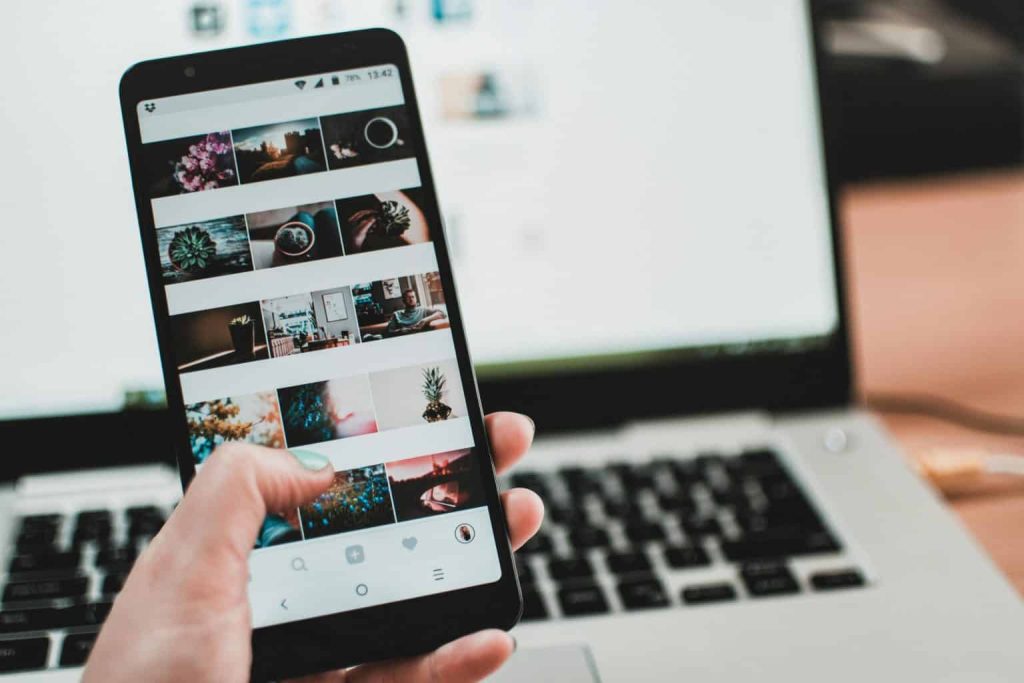
16 Mar Social Media Marketing for Contemporary Artists
Digital marketing has become an indispensable tool for contemporary artists to showcase their work, engage with audiences, and build a brand identity. Social media platforms have emerged as powerful channels for artists to connect with a global audience, share their creative journey, and promote their artwork. In this guide, we’ll explore how contemporary artists can leverage social media effectively across three generations of strategies. Moreso, the art world is experiencing a profound shift as digital platforms redefine how art is created, shared, and consumed. Contemporary artists are increasingly embracing social media as a vital component of their marketing strategy. Social media provides artists with unparalleled access to diverse audiences, allowing them to transcend geographical boundaries and connect with art enthusiasts worldwide.
Choosing the Right Platforms as Contemporary Artists

Photo by Austin Distel
Selecting the appropriate social media platforms is crucial for artists to effectively reach their target audience. Here’s a breakdown of some popular platforms and their strengths:
Platform | Strengths | Target Audience |
Visual-centric, ideal for showcasing artwork | Art enthusiasts, millennials | |
Diverse audience, opportunity for community-building | Varied demographics | |
X formerly known as Twitter | Real-time engagement, networking opportunities | Art critics, professionals |
TikTok | Trend-driven, potential for viral content | Younger demographics, Gen Z |
Creating Engaging Content
Captivating and retaining audiences require artists to concentrate on crafting compelling content. Firstly, showcasing artwork demands attention to high-quality visuals and the exploration of diverse formats to effectively present their creations. By doing so, artists can draw viewers into their world and leave a lasting impression. Secondly, engaging with the audience is crucial for establishing a meaningful connection. This involves actively responding to comments, initiating discussions through questions, and conducting polls to involve the audience in decision-making processes. Thirdly, artists should transcend their artwork alone and offer insights into their creative process. Collaborating with fellow artists not only enriches their content but also broadens their audience reach. Additionally, providing glimpses into the personal journey behind the art adds depth and authenticity to the artist-audience relationship. By integrating these strategies, artists can create a captivating experience that resonates with their audience and fosters long-term engagement.

Photo by Lisa Fotios
Building a Community and Brand
For artists, establishing a robust community and brand identity is crucial. They must maintain a consistent visual identity across platforms, ensuring their work remains easily recognizable. Consistent posting, strategic scheduling, and analysis of engagement metrics are essential to sustain audience interest. Networking with peers, galleries, and art enthusiasts expands their reach and cultivates valuable connections. Through these efforts, artists can effectively differentiate themselves, foster meaningful relationships, and enhance their presence in the artistic realm.
Leveraging Social Media for Sales and Promotion
Utilizing social media as a robust tool for sales and promotion can significantly enhance outreach and engagement strategies. One effective approach involves announcing upcoming events and exhibitions, such as art fairs, through various social media platforms to generate anticipation and attract attendees. Offering exclusive content to followers, including behind-the-scenes insights, special promotions, and discounts, not only cultivates a sense of community but also encourages customer loyalty and engagement. Moreover, directing traffic to one’s website or online store through social media channels is instrumental in facilitating sales transactions and showcasing portfolios to a broader audience. Finally, exploring paid advertising options enables businesses to target specific demographics more effectively and increase overall visibility within the digital landscape. By integrating these strategies, individuals and organizations can harness the full potential of social media to drive sales and elevate their promotional endeavors.

Photo by Ketut Subiyanto
Conclusion
Social media offers contemporary artists a vast array of opportunities to connect with audiences, build a brand, and achieve artistic goals. By leveraging the power of social media platforms, artists can amplify their reach, engage with diverse communities, and cultivate meaningful relationships with art enthusiasts worldwide. Remember to stay adaptable, experiment with different strategies, and embrace the transformative potential of social media in the ever-evolving art landscape.
Key Takeaways
- Social media is vital for contemporary artists to showcase their work, engage audiences, and build brand identity.
- Choosing the right platforms is crucial; consider target audience demographics and artistic goals when selecting platforms.
- Engaging content is key: focus on high-quality visuals, audience interaction, and insights into the creative process.
- Building a consistent brand identity across platforms is essential for recognition and audience retention.
- Utilize social media for sales and promotion by announcing events, offering exclusive content, and directing traffic to online stores.
- Utilize social media for sales and promotion by announcing events, offering exclusive content, and directing traffic to online stores.
FAQs
How do I choose the right social media platforms for showcasing my artwork?
To choose the right social media platforms for showcasing your artwork, consider your artistic goals and target audience demographics. Instagram is ideal for visual-centric content appealing to art enthusiasts and millennials, while Facebook offers diverse community-building opportunities. Platforms like X formerly known as Twitter cater to real-time engagement, attracting art critics, and professionals, whereas TikTok resonates with younger demographics, particularly Gen Z.
What strategies can I employ to create engaging content on social media?
Creating engaging content on social media involves focusing on high-quality visuals, diverse presentation formats, and active audience engagement through responses, discussions, and polls. Additionally, offering insights into your creative process and collaborating with fellow artists enriches content and broadens audience reach, fostering authenticity in the artist-audience relationship.
How can I leverage social media effectively for sales and promotion of my artwork?
Leveraging social media effectively for sales and promotion entails announcing events, offering exclusive content, and directing traffic to your website or online store to facilitate sales transactions and showcase portfolios. Exploring paid advertising options can help target specific demographics and increase overall visibility, enabling artists to harness the full potential of social media for sales and promotional endeavors.
Investigate “The Role of Galleries in Global Art Dialogue” and its contribution globally to the discourse and showcasing of international art.

